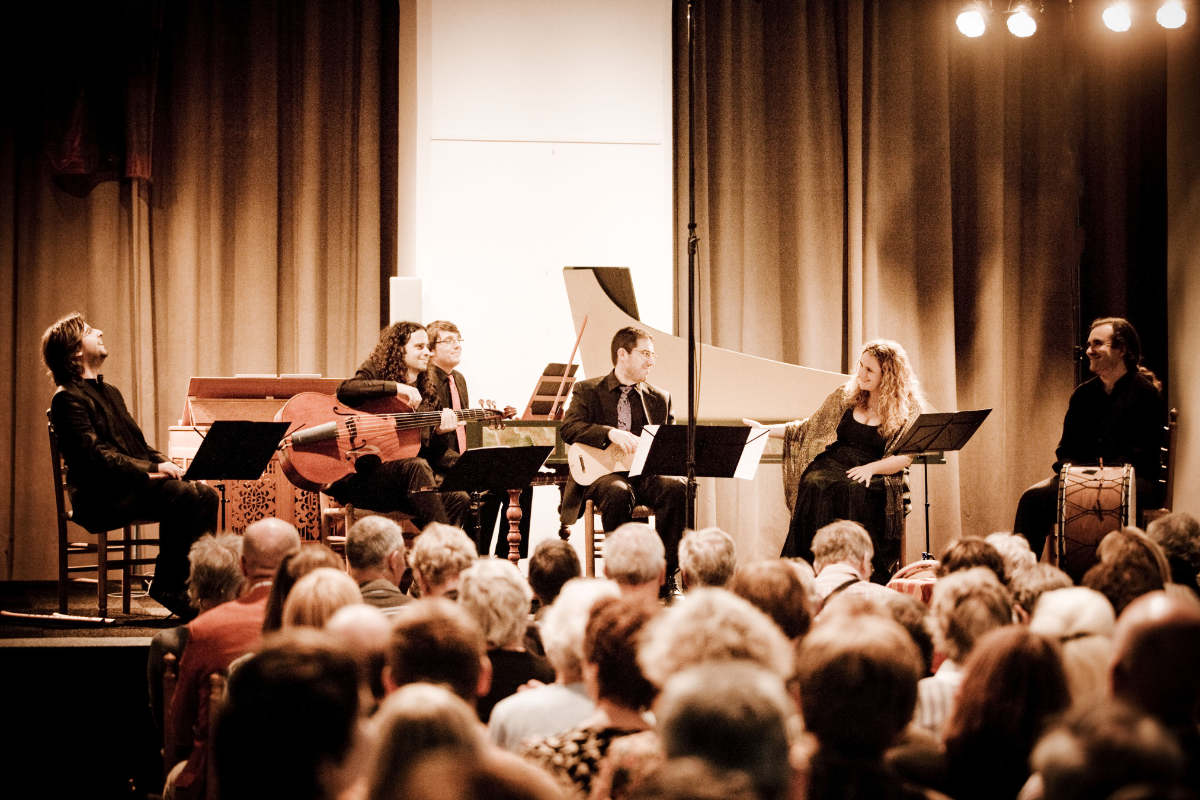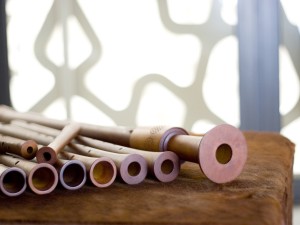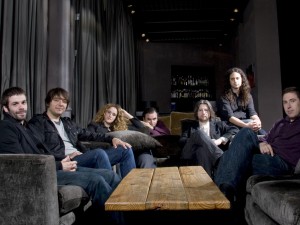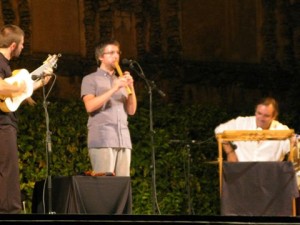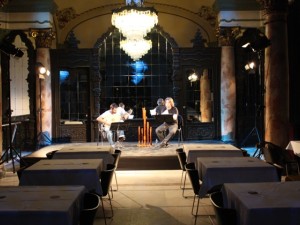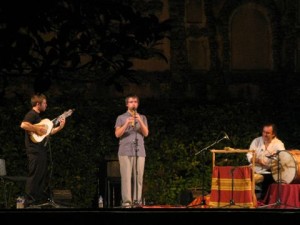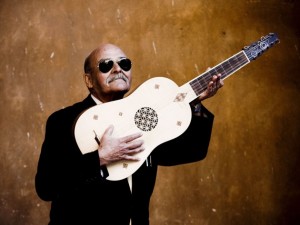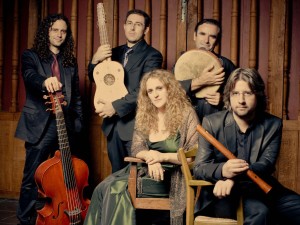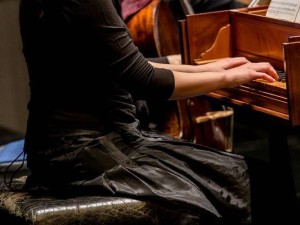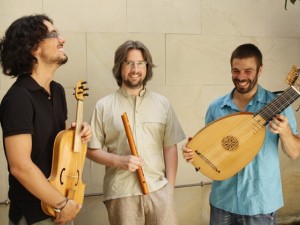Glosas & improvisations
New embellishments, improvisations and …
New embellishments, improvisations and counterpoint lines on famous Renaissance songs and madrigals All served with our own, brand new original embellishments. It can be heard in our GLOSAS CD.
Yr a oydo
Yr a oydo (old Spanish for Going by ear) is a …
Yr a oydo (old Spanish for Going by ear) is a programme that rethinks and contests the role of modern early music performers by trying to reinstate their creative capacity. Such creative tasks not only must belong to their performance but, indeed, contemporary performers should never omit them. You …
Improvisando
Improvisando. Photo by Miguel Ángel González …
Improvisando. Photo by Miguel Ángel González Improvisando is a step forward in how More Hispano has been dealing with improvisation during the past years. For the first time, we present a programme that is not based on written pieces but merely on harmonic-melodic patterns to be developed …
Madrigales Rotos
Madrigales rotos is the Spanish translation of …
Madrigales rotos is the Spanish translation of madrigali rotti — an Italian expression that has a historical equivalent in English ( Breaking the Ground) and Dutch ( Gebroocken door). During the Renaissance, it was used to refer to the embellishments applied to famous songs or madrigals. All served …
The New Hunt Is Upp
“Being the true voice of one’s time is (as Shaw …
“Being the true voice of one’s time is (as Shaw might have said) roughly 40,000 times as vital and important as being the assumed voice of history.” —R. Taruskin, The Spin Doctors of Early Music Improvisations on English Renaissance grounds. We love playing live Interested in booking this project? …
Secretos muy eçelentes
“Y hagan algunas fugas aguardándose el uno al …
“Y hagan algunas fugas aguardándose el uno al otro al modo como se canta contrapunto concertado y desta manera se irán conociendo y con el exercicio descubrirán secretos muy eçelentes que hay en esta manera de tañer.” —D. Ortiz, Trattado de Glosas, 1553 Songs, dances and improvisations from …
Passos Galanos
An exploration of the first “manera de tañer” …
An exploration of the first “manera de tañer” —the fantasia— described (quite unsuccessfully) by Diego Ortiz ( “la fantasia no la puedo yo mostrar porque cada uno la tañe de su manera”) through improvisation. More Hispano. Photo by Marco Borggreve We love playing live Interested in booking this …
La Dama le Demanda
“También se podrán aprovechar del libro los …
“También se podrán aprovechar del libro los curiosos menestriles [...], que con poca dificultad podrán pasar desta cifra en canto de órgano.” —Hernando de Cabezón, prologue to Obras de Música, 1578 Antonio de Cabezón’s music, beyond the keyboard. We love playing live Interested in booking this …
O Rosa Bella
Late Medieval & Early Renaissance Music. …
Late Medieval & Early Renaissance Music. Comprised of three different but historically correlative repertoires, this programme features some of the most representative works of the late Middle Ages (like Ciconia's ballate) next to a selection of the virtuoso diminutions contained at the Faenza …
